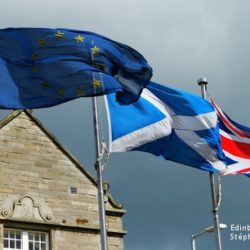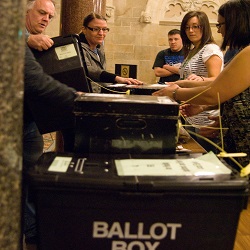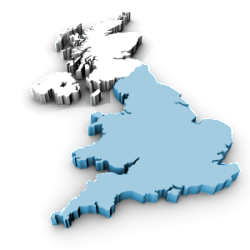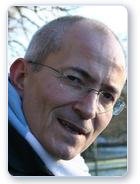News - Scottish Independence Referendum

The BES and Scottish politics 2019-2023: recent analysis and consultation
On Friday 13 September the BES will hold an overview and consultation session regarding recent BES data related to Scottish politics. The session will take place in Glasgow on 13 September from 10:00-12:00. During the session the BES team will present new analysis on questions…

A tale of two referendums – the 2017 election in Scotland
By Chris Prosser & Ed Fieldhouse Only two years after the astonishing rise of the Scottish National Party at the 2015 election, the SNP juggernaut seemed to come to a crashing halt. Although the SNP remained the largest party in Scotland at the 2017 election,…

Insights into #GE2015: Presentation by Professor Ed Fieldhouse
This week BES Co-Director Professor Ed Fieldhouse spoke to an ESRC sponsored ‘Chalk and Talk’ event at the Social Market Foundation, London, in which he explored the decline of our two party system. Electoral theory expects proportional systems to enhance smaller party voting and majoritarian electoral…

The Ongoing Independence Referendum in Scotland: Implications for 7th May 2015
By Jane Green and Chris Prosser There is no doubting that the Independence Referendum has had a profound impact on vote intentions for May’s general election. British Election Study (BES) data reveals the depth of that impact, in particular the impact of the transfer of…

Plus ça change? The ebb and flow of Scottish referendum voting intention
Apart from the day-to-day fluctuations and differences between pollsters, the opinion polls on the Scottish Referendum voting intention have been fairly stable over the last few months, with ‘Better Together’ leading with around 45%-50% of the vote, ‘Yes Scotland’ in the mid-thirties, and the remainder…

The British Election Study & the Scottish Constitutional Debate (by Professor Charlie...
It is striking how insular Scotland’s constitutional debate is. Both sides in the debate see Scotland’s constitutional future in different ways as bound up firmly in relationships with the rest of the UK. The Yes side envisages a form of independence which involves continuing partnership…

Settled wills? The psychology behind stable referendum polls (by Dr Rob Johns,...
In a marathon campaign like the one for votes in the Independence referendum on the 18th September, a good deal of the excitement is generated by ups and downs in the opinion polls. For those seeking to maintain interest, then, it is fortunate that the…

Class divisions and the Scottish Referendum
The Scottish Independence referendum campaign has focused heavily on the economic impacts of independence –whether the No campaign’s claims of a “UK dividend” or the Yes campaign’s promise of an economic renaissance for a newly independent Scotland. But how do voters’ own economic situations affect…

Better Together, whatever happens? Public reactions to post-‘No’ scenarios (by Dr Rob...
If Scotland votes ‘No’ on 18 September, what happens next? And might voters’ answers to that question influence how they vote in the referendum? Here, Rob Johns from the University of Essex analyses a British Election Study Internet Panel survey experiment which examined reactions to various…

Devolution deficit: how the promise of further devolution can save the Union
As the Scottish referendum campaign moves into the final three months the pro Union parties have emphasised their commitment to more devolution should Scotland choose to remain in the Union. The Conservatives recently outlined plans to devolve additional tax raising powers to the Scottish Parliament,…
